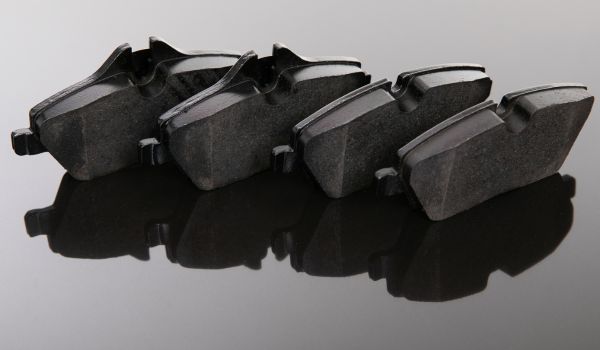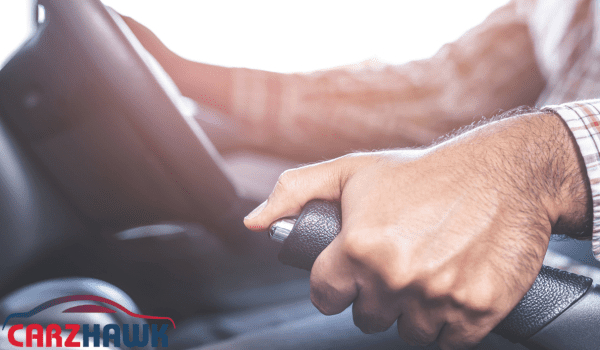When you brake, do you ever feel your car pull to one side? Or smell something burning coming from your wheels? These and other signs often mean that the sticking brake caliper, which is a common problem that can be dangerous.
In order to fix a sticking brake caliper, you need to know what the most common signs are and what the most likely underlying reasons are.
Signs of Your Sticking Brake Caliper or Freezing
1: The car pulls to one side
If your brake caliper gets sticking or seizing up, your car will pull to the side where the caliper is stuck. It will feel like having a bad alignment, but it’s generally worse. This will happen when you’re moving as well as when you’re stopping.
It is extremely risky to keep driving when your car won’t stay straight. Right away, you or a professional repair should check your brake calipers to make sure that a broken caliper isn’t the cause. Otherwise, it’s possible that your car needs to have its wheels aligned.
2: The car slows down on its own
When one or more of your brake calipers is sticking, they often get jam where they make your brake pads touch your brake rotors all the time. So, even though your foot isn’t on the brake pedal, it feels like you’re stopping.
Also, you will quickly wear through the material of the brake pads, which can lead to high-pitched sounds or grinding when enough material is gone. Check to see if your brake calipers are Sticking. If they are, change the caliper and any parts that go with it.
3: Too much heat from the wheel area
If the brake caliper is Sticking, it will constantly press on the back of the brake pad. This will cause friction between the brake pad and the rotor, which will generate heat. There will be more heat in that area the longer you drive with a stuck brake caliper.
If you slowly walk around your car after stopping, you should feel extra heat coming from one wheel when you put your hand close to it.
4: Bad Gas Mileage
This is often a sign that your brakes have finally given out.
A lot of different issues, such as your brakes, can cause bad fuel economy. As was already said, a stuck caliper will cause your car to brake without meaning to. Which will make the engine work hard to stay at the same speed, which will use more gas.
5: Smells like fire
A brake caliper that won’t move drags and rubs against the brake wheel all the time, even when you’re not pressing the brakes. This friction makes a lot of heat, which can quickly damage the caliper, brake pads, and rotor. Often, the burning smell comes from these parts that are too hot and are grinding against each other.
This steady friction also makes brake pads and rotors wear out faster. The metal backings of the pads and rotors rub against each other as they wear down. This creates a smell that is like chemicals or rubber on fire. The extreme heat can even cause the brake dust and debris that has built up on the calipers and rotors to catch fire, which adds to the burning smell.
How to Fix a Sticking Brake Caliper
Sticking brake Caliper don’t happen very often, but when they do, there are only a few things that could be wrong. Most of the time, these three happen.
1: The brake caliper piston and brake hose
The caliper piston and the brake line are most often to blame when a brake caliper gets stuck. The piston has a rubber boot that keeps it smooth and safe. However, it will let dirt and rust get inside the caliper, making it harder for the piston to slide.
The caliper piston’s rubber boot is often torn by careless workers. Who are putting on new brake pads, but it can also wear out over time.
It will take some time for the brake hose to wear out. As soon as the hose starts to crack or break, brake fluid will flow onto the pistons and slow down the car. Things will get worse because the fluid won’t be able to get back to the master cylinder. This will cause the caliper to stick.
2: The brake caliper slides.
Plus, the caliper moves are often the cause of something. When you step on the stop pedal, the brake pads slide into grooves in each caliper. The brake pads come out of their holes when you take your foot off the.
The brake pads will get stuck in the grooves, though, if there is dirt or corrosion in the slots or on the pads. This means that the brake pads won’t come out of the holes when you take your foot off the brake pedal. When you press down on the brake pedal, feels the sticking brake calipers.
3: Bolts for the brake calipers
And the bolts that hold the brake caliper together could also be frozen. These nuts also slides, but they can get stuck if they get too dry and are only oiled sometimes.
The bolts have a layer of protected rubber around them that keeps the lubricant inside. However, this rubber is very easy to tear, which lets the lubricant leak out. This usually takes place by mistake when mechanics are putting on new brake pads.
The moving mechanism will get worse once the bolt dries out because it will let rust and other things build up on it.
Case Study:
You can read about my experience below if you’re having trouble with your car not moving at all because the brakes are Sticking. Something might be wrong with you, too.
I’ve had this problem before, and the car wouldn’t move because all four brake pads were holding the rotor discs very tightly. So, I start to get rid of each part of the trouble one by one. Here’s the process I used to figure out what was wrong before I finally found the cause.
Look at the caliper and piston –> OK
Check the brake line and hoses. OK.
Make sure the brake fluid is full.
Check the connection for the brake line. OK.
Check the master cylinder for the brakes.
Let the brake fluid drain –> OK.
The problem is still there.
After finally taking off the brake booster, I measured how long the push rod was. It turned out that the push rod was longer than it should have been. This meant that it always pushed the master cylinder and put pressure on the brake discs’ caliper pistons. All of the brakes got stuck because of this, and the car could not move.
That was it! The problem was fixed by just adjusting the push bar to the normal length.







